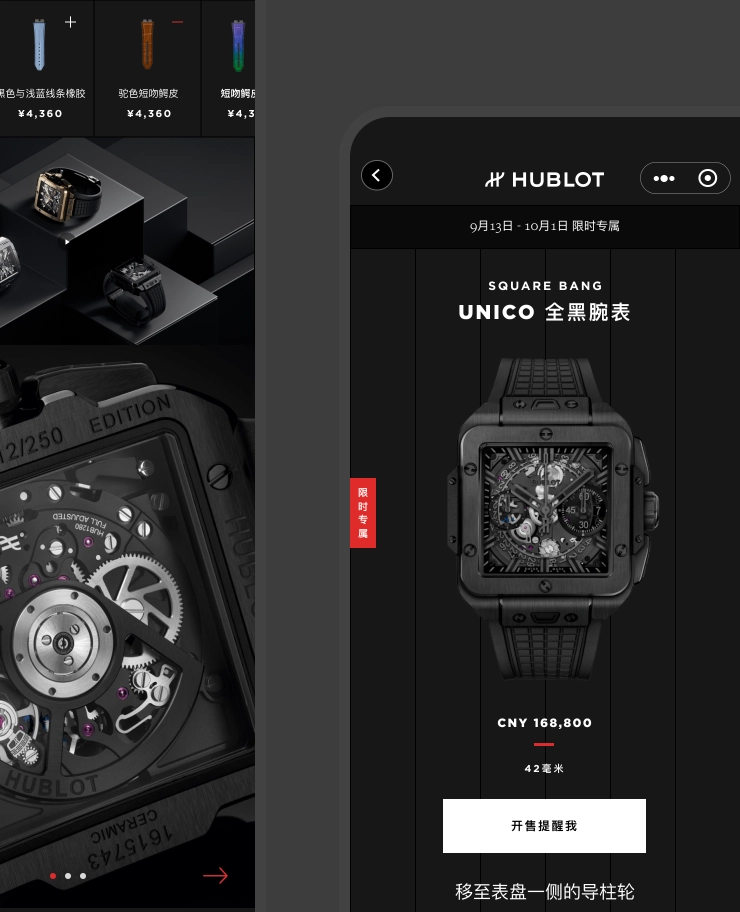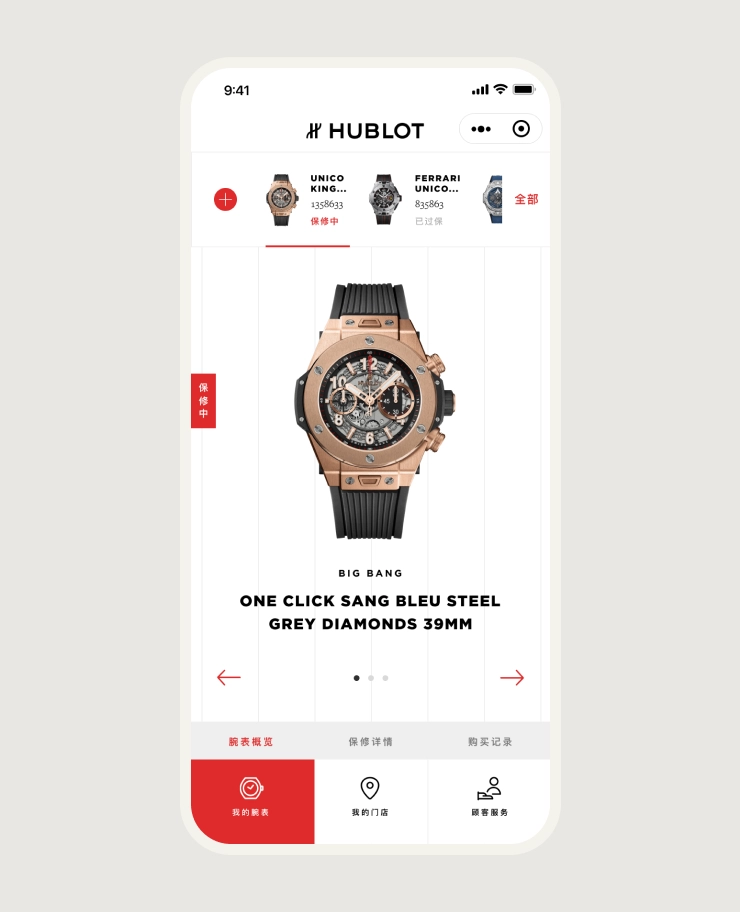WeChat Mini Programs for Ecommerce - Trends, Benefits, and Future Outlook
June 19th, 2024 · Written by Samuel Jesse

Contents
If you're a brand looking to tap into China's thriving ecommerce market, chances are you have heard about the massive potential offered by China’s super app WeChat. WeChat mini programs are the game-changing tool that's quietly revolutionizing how brands connect with Chinese consumers.
For those new to the concept:
WeChat mini-programs are apps within the WeChat ecosystem. They're lightweight, fast-loading, and seamlessly integrated into the platform where over 1 billion users spend much of their digital lives. From ordering food to booking appointments, paying bills, and playing games, mini programs have become an indispensable part of the WeChat experience.
For brands, WeChat mini programs open up a world of possibilities. Imagine having your store in the pockets of millions, with just a few taps separating curious scrollers from becoming loyal customers. Picture leveraging WeChat's social features to turn each happy buyer into a brand advocate, sharing and recommending your products to their network. That's the power of WeChat mini program ecommerce – we're just scratching the surface.
In this article, we'll dive into the WeChat mini program ecommerce world and explore why it's become the go-to choice for savvy businesses. We'll unpack the latest trends, benefits, and future predictions to help you decide if launching a WeChat mini program could be your brand's secret weapon.
Ready to explore further? Let's dive into the data behind the mini program boom and uncover why brands across industries are racing to embrace this trend.
Growth and Adoption of WeChat Mini Programs
Let's start with some hard data to understand the hype around WeChat mini programs. As of March 2024, WeChat boasted an astounding 945 million monthly active users on its mini program platform. That's nearly a billion people regularly engaging with these bite-sized apps – a figure that's more than doubled since September 2018.
But how does WeChat stack up against other mini-program players in China? Quite impressively, it turns out. According to data from March 2024, WeChat leads the pack with 945 million monthly active users, followed by Alipay's mini-program platform at 648 million. Other contenders like Baidu and Douyin (China's TikTok) are also making their mark, but WeChat remains the undisputed king of mini-programs.
So, what's driving this massive growth? For starters, WeChat's unparalleled reach and deep integration into users' daily lives make it the perfect launchpad for mini programs. With just a few taps, users can access a world of services and experiences without ever leaving the comfort of their favorite app.
But it's not just about convenience. As more brands flock to the platform and more users get accustomed to the mini program experience, a virtuous cycle takes hold. Brands invest in creating better mini programs, which attract more users and in turn incentivize brands to up their game – and on and on it goes.
Of course, it doesn't hurt that WeChat's parent company, Tencent, has thrown its considerable weight behind mini-programs. By continually optimizing the platform, offering developer support, and integrating mini-programs into its vast ecosystem of services (think WeChat Pay, WeChat Work, etc.), Tencent has created a fertile ground for them to thrive.
A booming mini program economy that shows no signs of slowing down. As we'll explore in the following sections, this growth is opening up exciting new opportunities for brands to connect with consumers and drive sales in innovative ways.
Benefits of WeChat Mini Program Ecommerce for Brands
WeChat mini programs offer many benefits for brands looking to succeed in China's competitive ecommerce market. Here are some of the key advantages:
Unparalleled Reach
-
Access to WeChat's massive user base of over 1.2 billion monthly active users
-
Highly engaged users spend an average of 82 minutes per day on the app
Seamless User Experience
-
Integrated browsing, purchasing, and payment within the WeChat interface
-
Reduced friction and increased conversion rates compared to external apps or websites
Social Sharing and Viral Potential
-
Easy sharing of mini programs with friends and in group chats
-
Organic brand exposure and word-of-mouth marketing at little to no cost
Valuable User Insights
-
Robust analytics tools for tracking user demographics, behavior, and preferences
-
Data-driven insights to inform targeted marketing and business strategy
Low Barriers to Entry
-
Lower development costs and faster publication process compared to standalone apps
-
Opportunities for smaller brands and niche products to gain visibility and market share
WeChat mini programs provide brands with an unmatched combination of reach, user experience, social potential, customer insights, and accessibility. By leveraging these advantages, brands can effectively tap into China's vast ecommerce market and drive business growth.
Current Trends in WeChat Mini Program Usage and Ecommerce
Now that we've explored the benefits of WeChat mini programs for brands let's examine how consumers use these tools daily.
According to data from March 2024, the top WeChat mini programs by monthly active users span a range of industries and use cases. Tencent's mobile top-up mini program claimed the top spot with over 710 million users, followed by ridesharing giant DiDi's mini program at 485 million. Other popular mini programs include the daily deals platform Meituan Youxuan, mobile games, and ecommerce marketplaces like JD Shopping and Pinduoduo.
But what's particularly interesting is the breakdown of mini program traffic by category. As of March 2023, the daily services category (which includes things like food delivery, ridesharing, and bill pay) claimed the largest share of traffic at 28%. Mobile shopping was close behind at 12%, followed by mobile games at 11%. This data suggests that while ecommerce is a key use case for mini programs, consumers also rely heavily on them for everyday tasks and entertainment.
Within the ecommerce category, we're seeing some exciting trends emerge. For example, social commerce - the combination of social interaction and online shopping - is exploding in popularity on WeChat mini programs. Platforms like Pinduoduo have built their entire business model around group buying and social sharing, leveraging WeChat's network effects to drive sales.
Another trend to watch is the rise of private traffic or brand-owned channels for reaching and engaging customers. By launching loyalty programs, exclusive content, or limited-edition products within their mini programs, brands can cultivate a sense of community and drive repeat purchases. This shift towards owned channels is becoming increasingly important as ad costs rise and data privacy regulations tighten.
Moreover, once a brand has built a mini program, it has an opportunity to precisely target its marketing efforts, segmentize its customer base, maintain detailed profiles for its clients, send personalized offers, and more by integrating WeCom (previously known as WeChat Work).
WeCom is an enterprise-grade communication and collaboration platform designed specifically for businesses. It integrates seamlessly with WeChat mini programs, allowing brands to manage customer relationships, analyze data, and automate workflows all within the WeChat ecosystem.
For example, using WeCom's clienteling features, ecommerce brands can:
-
Directly message customers and share targeted content
-
Sync customer data between their mini program and CRM
-
Provide personalized customer support via in-app chat
-
Gather feedback through embedded surveys
-
Manage customer access and permissions
By leveraging WeCom's customizable capabilities, brands can gain a unified view of each customer across touchpoints. This enables them to provide hyper-personalized experiences, nurture relationships, and drive loyalty - all critical for standing out in a crowded ecommerce market.
Finally, we're seeing more and more brands experiment with creative mini program formats to engage customers. From virtual try-on features for cosmetics to interactive games, quizzes, and animations, brands are leveraging WeChat's capabilities to create memorable experiences.
As these trends continue to evolve, WeChat mini programs integrated with WeCom are becoming an increasingly essential part of the ecommerce landscape in China. Brands that can harness their combined power to deliver personalized, engaging, and seamless shopping experiences will be well-positioned for success in this dynamic market.
Future Outlook and Predictions
As we've seen, WeChat mini programs have already made significant strides in the ecommerce space, revolutionizing how brands connect with Chinese consumers. But what does the future hold for this dynamic market? Let's explore some key predictions and potential developments.
Continued Rapid Growth of WeChat Mini Program Users and Ecommerce
All signs point to the continued explosive growth of WeChat mini programs, particularly in the ecommerce sector. With user numbers already soaring past 945 million as of March 2024, it's clear that consumers have wholly embraced this convenient, integrated way of shopping.
As more brands flock to the platform and users become increasingly accustomed to making purchases within WeChat, we can expect to see mini program ecommerce transactions skyrocket. The seamless user experience, social sharing capabilities, and personalized recommendations will continue to drive adoption and spending.
Expansion into New Product Categories and Verticals
While fashion, beauty, and consumer goods have been early adopters of WeChat mini program ecommerce, the future will likely see a broader range of industries hopping on board. From luxury cars to high-end real estate, brands across verticals are waking up to the power of this channel.
In the automotive industry, WeChat mini programs could revolutionize the car buying experience. Imagine a mini program that allows users to virtually explore and customize their dream car, schedule test drives, and even make a purchase – all without leaving WeChat. Augmented reality features could let users "place" a car in their driveway to see how it looks, while virtual showrooms could showcase the latest models and features.
For the real estate market, mini programs could streamline the process of finding and purchasing or renting a home. Users could browse listings, take virtual property tours, and connect with agents – all within WeChat. Mortgage calculators, neighborhood guides, and even furniture placement visualizations could help buyers make informed decisions and envision their future homes.
The education market is another area ripe for disruption by WeChat mini programs. Language learning, tutoring, and other educational services could find a natural home within this platform. Imagine a language learning mini program that not only delivers lessons but also allows students to practice conversing with AI chatbots, join group study sessions, and receive personalized feedback from tutors. By leveraging WeChat's social features, educational mini programs could foster communities of learners who support and motivate each other.
Even the financial services industry could benefit from mini program integration. Users could manage their investments, apply for loans, and receive personalized financial advice – all without leaving WeChat. Mini programs could also streamline the insurance buying process, allowing users to compare policies, file claims, and communicate with agents seamlessly.
As more businesses across verticals recognize the potential of WeChat mini programs to engage customers and drive sales, we can expect to see a surge in innovative offerings. From virtual product demonstrations to immersive brand experiences, the possibilities are endless.
Beyond these specific industries, we can anticipate a general trend towards more experiential and interactive mini programs. As brands seek to differentiate themselves in a crowded market, they'll likely invest in features like augmented reality, engaging animation, personalized recommendations, and games or quizzes.
The future of WeChat mini program ecommerce is not just about transactional efficiency – it's about creating memorable, immersive experiences that keep users coming back for more. As the platform continues to evolve and brands push the boundaries of what's possible, we can expect to see a new era of innovative, engaging ecommerce emerge within the WeChat ecosystem.
More Brands Launching Mini Programs to Complement Other Channels
As the benefits of WeChat mini program ecommerce become increasingly apparent, we'll likely see a surge in brands launching their own mini programs to complement existing online and offline sales channels. Rather than viewing mini programs as a standalone endeavor, savvy businesses will integrate them into a holistic, omnichannel strategy.
This means using mini programs to drive traffic to physical stores, leveraging offline events to boost mini program engagement, and creating seamless experiences across touchpoints. Brands that can master this interconnected approach will be best positioned to capture the hearts (and wallets) of Chinese consumers.
Emerging Technologies and Innovations in WeChat Mini Program for Ecommerce
As WeChat mini programs continue to evolve, brands are leveraging cutting-edge technologies and innovations to create even more engaging and immersive ecommerce experiences. Here are some of the most exciting developments to watch:
Artificial Intelligence and Personalization
AI-powered features are becoming increasingly common in mini programs, enabling brands to deliver hyper-personalized experiences to users. From product recommendations based on browsing history to virtual styling assistants that help users find the perfect outfit, AI is transforming the way consumers shop on WeChat.
Augmented and Virtual Reality
Augmented Reality (AR) is another game-changing technology being integrated into WeChat mini programs. AR eliminates the guesswork and hesitation often associated with online shopping by allowing users to virtually try on products like makeup, glasses, or even place furniture. Brands that can offer realistic, immersive AR experiences stand to gain a significant competitive edge.
Live Streaming and Social Commerce
Live streaming has exploded in popularity on WeChat, with brands leveraging this engaging format to showcase products, host Q&A sessions, and even facilitate real-time purchases. By combining the immediacy of live video with the interactivity of WeChat's social features, mini programs are blurring the lines between entertainment and ecommerce.
Voice Commerce and Chatbots
As voice assistants and chatbots become more sophisticated, brands are exploring ways to integrate these technologies into their WeChat mini programs. By enabling users to search for products, ask questions, and even place orders using natural language voice commands, mini programs are becoming more intuitive and accessible than ever before.
As these innovations continue to evolve and new technologies emerge, the possibilities for WeChat mini program ecommerce are endless. Brands that stay at the forefront of these trends and invest in cutting-edge features will be well-positioned to capture the hearts and minds of Chinese consumers in the years to come.
The world of WeChat mini program ecommerce is a dynamic and exciting one, full of endless possibilities for brands looking to connect with Chinese consumers in meaningful ways. By staying attuned to the latest trends, technologies, and innovations, brands can create immersive, engaging experiences that drive sales, foster loyalty, and set them apart in a crowded market.
However, navigating this complex landscape and bringing a top-of-the-line mini program to life requires expertise and experience. By partnering with a knowledgeable and skilled development agency like Digital Creative Asia, brands can unlock the full potential of WeChat mini program ecommerce and confidently achieve their goals.
As the WeChat ecosystem continues to evolve and new opportunities emerge, one thing is clear: the future of ecommerce in China is bright, and mini programs will undoubtedly play a central role in shaping it. Is your brand ready to take the leap? Schedule a call with us today.
Have a project in mind?
Join our newsletter!
Get valuable insights on the latest digital trends, strategies, and developments in China and globally delivered straight to your inbox.

